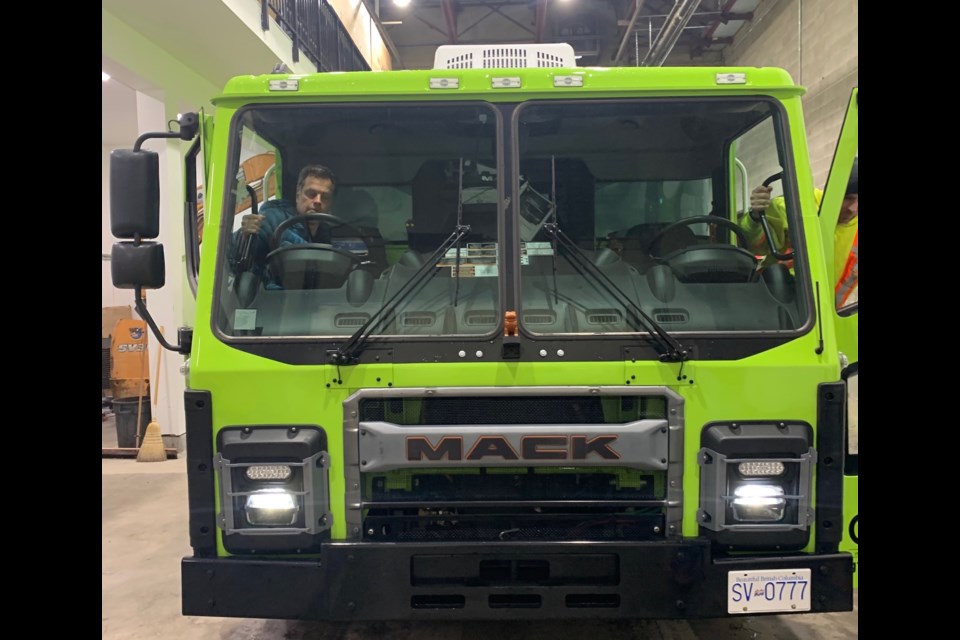It has been about a year and a half since Green For Life (GFL) Squamish welcomed its first all-electric automated side loader truck, .
So how has Zappy been performing? The Squamish Chief asked the District of Squamish, which contracts GFL for the town’s trash pickup, this and other questions about the truck.
What follows is a version of that exchange that has been edited for length.
Q: Overall, how has the electric truck done?
A: GFL reports that the electric truck has seamlessly integrated into the curbside collection program. Crews have indicated the truck is very quiet.
Q: How does the energy consumption of the electric garbage truck compare to initial estimates?
A: According to GFL, initial estimates were approximately four hours of power each day, which is what is currently being achieved. A second-generation battery should allow for an additional two hours of run time, though the batteries have yet to arrive.
Q: Have there been any unexpected fluctuations in energy usage?
A: GFL reports that energy consumption has been fairly stable. The truck is recharged at night when other electricity draws are at a minimum.
Q: What is the average energy consumption per route or per day?
A: GFL reports that the truck receives between four and five hours on a charge. In perfect conditions, drivers have managed to get up to eight hours. Maintaining a relatively low speed helps to extend its battery life.
Q: What are its strengths and weaknesses? How has the battery held up over the year in terms of capacity and charging efficiency?
A: The battery has performed as expected and recharges according to best practices for battery longevity.
Q: Are there any signs of degradation or performance issues with the battery?
A: GFL has not noted any at this time.
Q: What is the average range per charge, and has this changed over time?
A: GLF reports an average range of 4 to 5 hours per charge which can be affected by weather conditions, speed and approach to hills.
Q: How does the electric garbage truck's performance compare to conventional diesel trucks in terms of speed, torque, and handling?
A: Performance is approximately the same. GFL crews can only collect about three-quarters of a truck’s typical load before it becomes overweight due to the weight of the batteries.
Q: Have there been any mechanical or technical issues specific to the electric components?
A: GFL has reported a few issues with the truck itself, but not specific to the electrical operating system.
Q: What is the maintenance schedule like, and have there been any unexpected maintenance needs?
A: GFL does not have the tools or training to work on the electrical components. That work is completed by Mack trucks according to a maintenance schedule similar to the diesel trucks.
Q: What do drivers think about operating the electric garbage truck compared to diesel models?
A: GFL reports that its drivers enjoy operating the electric truck once they adjust to its quiet operating mode.
Q: How has the electric garbage truck contributed to the organization's sustainability goals?
A: The District of Squamish and GFL share a commitment to sustainability, and finding better, more environmentally sound strategies, such as investing in EV technologies.
Q: Are there any plans for more electric trucks at GFL?
A: GFL has purchased two more EV trucks in B.C., in 2024, and several others in Ontario.
Q: Anything else you would like readers to know?
A: GFL has showcased Squamish’s electric truck at a variety of EV events throughout the Lower Mainland, each time demonstrating Squamish’s commitment to sustainability and the environment.

